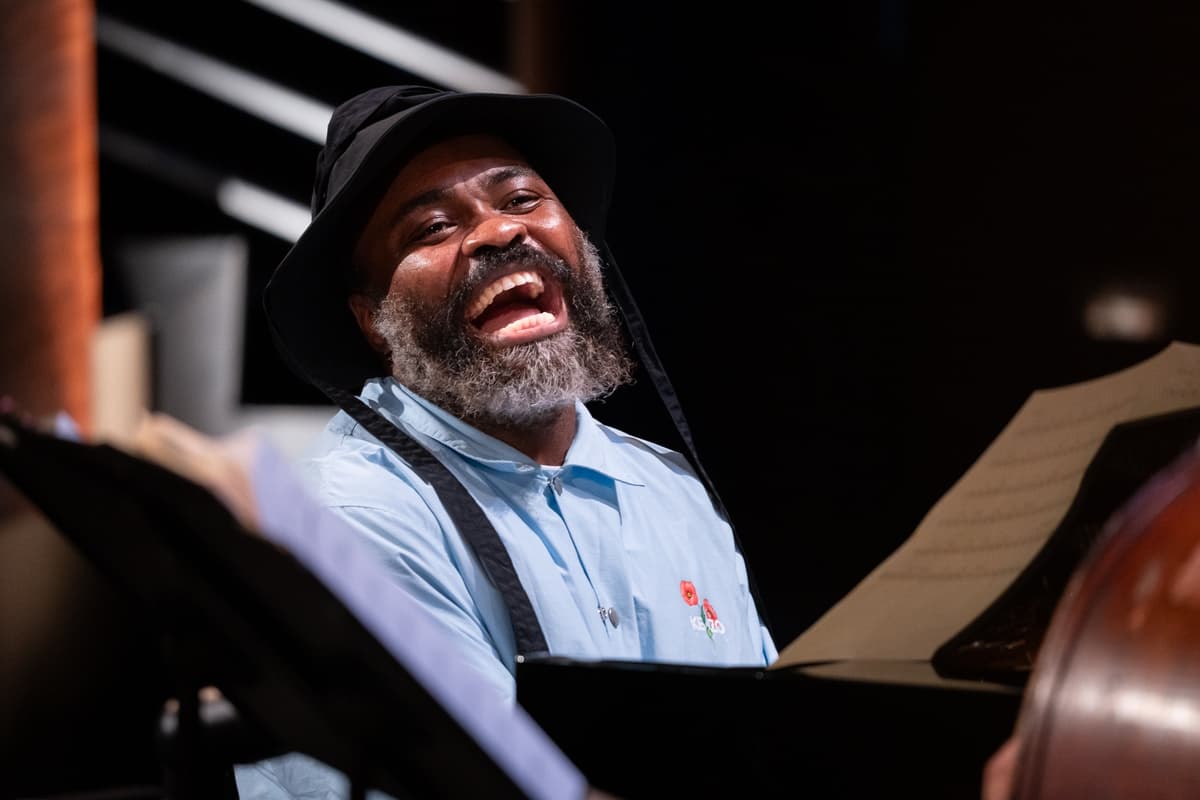Jazz at Lincoln Center’s ‘Mother Africa’ Season Turns Focus to the Music of the Late Bheki Mseleku
For this latest program, one of the youngest and newest members of the ensemble, saxophonist Chris Lewis, serves as musical director.

Nduduzo Makhathani: The Music of Bheki Mseleku
Jazz at Lincoln Center
Streaming Through November 1
Roughly a month ago, Jazz at Lincoln Center launched its 2025-26 season with a new work by a major American composer and musician conceived in the agreed-upon general style of African music. This past weekend, the season continued with an evening of works by two contemporary African jazz composers.
The surprising thing — though perhaps it shouldn’t have been — was that the first work, Wynton Marsalis’s “Afro!,” sounded a lot more characteristically African than the compositions of Nduduzo Makhathani and the late Bheki Mseleku. However, in saying that, I realize that I’m influenced by my own pre-conceived notions of what African music is supposed to sound like.
For this latest program in the ongoing season devoted to “Mother Africa,” one of the youngest and newest members of the ensemble, saxophonist Chris Lewis, served as musical director. In the customary JALC tradition, he assembled a program of works by these two greats — both from South Africa — and then commissioned about a half-dozen members of the extended JALC family to orchestrate them for the orchestra.
The first thing I noticed in the opening number, Mseleku’s “Mister Allard” — dedicated to the French record producer Jonathan Allard, who worked extensively with Mseleku — is that there weren’t any of the customary devices that American arrangers utilize when trying to come up with an African sound.
Firstly, both African and Afro-Cuban-style jazz often involves an entire percussion section, but here we simply got the JALC Orchestra’s regular trap drummer, Obed Calvaire – and he was more than enough. And while Alexa Tarantino played several flute solos, there wasn’t the expected reliance on a whole battalion of flutes and African-style pennywhistles. While African music often uses a lot of polyrhythms, these pieces were fairly straightforward, most being cast in a swinging 4/4.
The evening consisted of what we might call mainstream contemporary big band jazz — similar to the JALCO’s productions of works by American composers. There was a specific freshness to the music in that it also didn’t rely on the tropes of most big band jazz – not leaning too heavily into the blues or “Rhythm” changes.
The evening alternated between the works of Mseleku (1955-2008) and Dr. Makhathani (born 1982), mostly with the latter on piano, though JALC’s pianist, Dan Nimmer, also played on several tunes. For “Umbuno,” the arrangement by Abdias Armenteros framed a lively piano trio interlude, with the composer joined by bassist Carlos Henriquez and Mr. Calvaire, as well as a tenor saxophone solo by the arranger.
Perhaps the best-known number on the program was Mseleku’s “Through the Years,” which became famous when the great jazz singer-songwriter Abbey Lincoln added a lyric and sang it on one of her final albums, “It’s Me,” in 2003. On Saturday, Wynton Marsalis had arranged it for the orchestra, utilizing a unique reed section of five clarinets as well as four plunger-muted trumpets.
The main feature was the South African baritone Vuyo Sotashe, an excellent jazz singer whom one yearns to hear more of, and this warm and evocative ballad also included a sweet-toned clarinet solo by Mr. Lewis himself.
In the second half, Mr. Sotashe sang wordlessly in the doctor’s “Kome,” arranged by Chris Crenshaw, a meditative tone poem of the piece that employed the human voice as an orchestral instrument. The brass was warm, the reeds were warmer, but Mr. Sotashe’s baritone was warmer still.
Occasional JALC pianist Joe Block contributed a fast and swinging treatment of Dr. Makhathani’s “Same Mother” with spots for Mr. Lewis on tenor and what was probably Mr. Marsalis’s best solo of the evening — and Dr. Makhathani chanting as well as playing.
The most overtly pianist piece was quite possibly Mseleku’s “Sulyman Salud” — inspired by the late piano icon McCoy Tyner (the title is his Muslem name) — arranged by Chris Crenshaw, who wasn’t present, so the trombone solo here went to Vincent Gardner.
Dr. Makhathani’s interlude reflected Tyner’s overall influence — particularly in his famous solos with the Classic John Coltrane Quartet — as well as nods to Thelonious Monk and Abdullah Ibrahim. If there’s such a thing as a characteristic African piano sound, this is it.
The two-act concert concluded on a relatively tranquil note: Carlos Henriquez arranged “C-Ton (Planet Earth)” in jazz waltz time, and gave himself a spot for a bass intro, and then we ended with the climactic “Monwabisi” by Mseleku and arranged by Mr. Lewis himself.
This featured three piano players — Mr. Nimmer, Dr. Makhathani, and a special guest, the Kenyan pianist Aaron Rimbui — alternating with each other as well as a spot for Mr. Sotashe. This comes from a Mseleku album titled “Home at Last”; it was upbeat and swinging but hardly the usual high-energy, super-fast, super-loud number that closes most jazz concerts.
Rather it was a very satisfying reminder that no matter who we are or where we come from, Africa is indeed the mother of us all.

